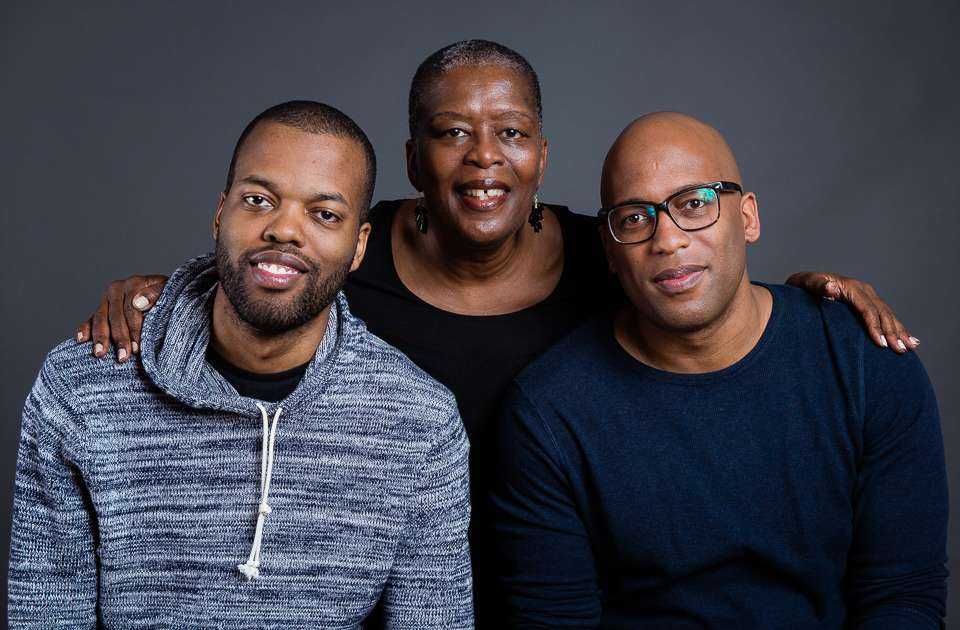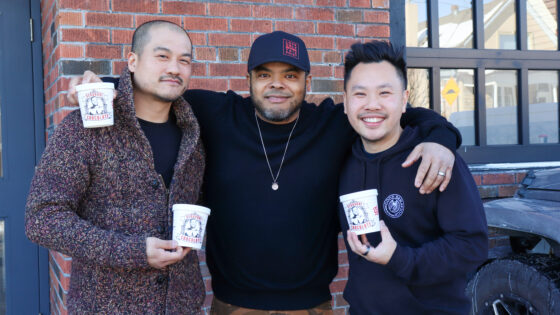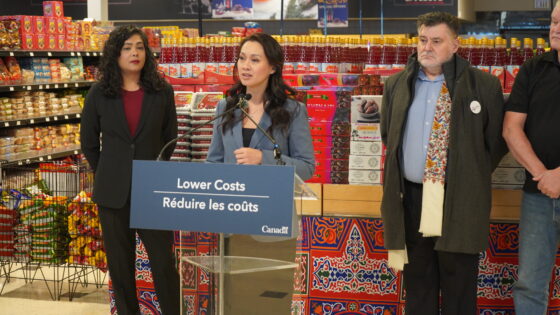on
BY SIMONE J. SMITH
“One day at a time we carry on, and I guess it’s our turn with the torch to run this next leg of the race. I’ll do my part with honour. Mom, you will always be a legend in my eyes. Thank you for setting and being the standard.” Jesse Jones
This year in general has been a struggle, and my heart goes out to those who have lost loved ones during this time. Transitions are hard to navigate emotionally, regardless of what they are, but the ones that are permanent always leave a space that is never truly filled.
On December 3rd, 2020, the Caribbean diaspora lost a phoenix, which had risen through the Toronto entertainment industry, and left behind a legacy that will always be aspired for. Denise Jones died at her Brampton home, surrounded by family. She had been diagnosed with brain cancer last year, and up until that point, this super force had established a level of excellence that had not been seen until her time.
She was known as the friend who opened her door on New Year’s Day every year. She was committed to her community, and showed it in her words, as well as her actions. She worked alongside the Jamaican Canadian Association, as well as the Black Business and Professional Association. She became a common face at the Harry Jerome Awards, and was a recipient of a HJA in 2014.
She was the recipient of a Government of Ontario Community Service award, a Ministry of Citizenship Ontario Government Award, and the African Canadian Achievement Award. During her time in Sudbury, Denise was the theatre critic and arts reporter for CBC Radio, and upon moving to Brampton later in her life, she served as the executive director for the Peel Multicultural Council.
For her work in entertainment and the development of the Canadian music industry, she has been awarded her the Lifetime Achievement Award from the Urban Music Association of Canada, and the Bob Marley Memorial Award. To add to her list of accomplishments, Denise served as Vice President Education and Vice President Marketing of CanSPEP (The Canadian Association of Special Event Planners).
The biggest names in the entertainment industry have spoken about Denise as a mentor. Kardinal Offishall honoured her memory on Instagram by letting the world know that artists got to where they were because they stood on the shoulders of giants like Denise Jones. It was Denise who shared the importance of reggae to Canada when she founded the Juno’s reggae category.
To reggae superstars like Exco Levi, Denise was, “A brilliant manager, friend, mother and teacher.” Under her management, Exco won five Juno Awards, and was nominated for another two. He won a Harry Jerome Award, and was inducted into the Brampton Walk of Fame.
Just writing this makes me take stock of my life. What an honour it was to have this woman existing during our time. For those who are unaware of the magic she brought to this world, let’s take a short, historical look at the dynamic Denise Jones.
Denise Joe was born on April 23rd, 1956 in Port Antonio, Portland Parish (East Jamaica). Her draw to the arts started in Jamaica. She was an actress in several stage productions, and even after coming to Canada where she attended the University of Windsor, she returned back home to share the experiences of what she had learned.
She found love in her husband Allen Jones – who also happened to be an actor – got married and made a permanent move to Canada. The family started their life in Sudbury, moved to Scarborough, and then in 1997, moved to Brampton, all the while trailing success behind them.
She had her first son Jesse, in 1981, and then had Jerimi, their second son, not too long after. During this time, they were slowly growing their empire, putting on plays and theatre productions, making weekend trips to and from Toronto for their productions at the JCA (located on Arrow Rd).
It wasn’t long before the Jones had established their roots in the entertainment world. Their love for the arts sparked the creation of Jones & Jones Productions in 1987, and the Rhythm Canada Talent Agency three years later. At that point, if you were an up-and-coming reggae artist, you would benefit from “Keeping up with the Joneses!” Almost immediately, Jones & Jones was heralded as one of the premier music promotion and brand marketing companies in Canada. They produced over 30 concerts and plays annually, as well as talent search competitions. In 1997, the Star named Jones one of Toronto entertainment scene’s people with clout.
They are the company behind JAMBANA™, One World Festival – the second largest Afrocentric cultural event in Canada. At its height, the festival drew over 45,000 attendees and was named one of Ontario’s Top 100 Festivals in 2015. They brought the likes of Toots and The Maytals, and just last year, Jamaica’s rising star Koffee was brought down for a concert.
Her scope of contributions was also seen in the local communities across the GTA. Denise was instrumental in the Peel District School Board’s establishment of Black History Month celebrations and served as a board member for the: Brampton Board of Trade, Obsidian Theatre Company, Canadian Independent Record Producers Association, and Helping Hands Jamaica Foundation of Canada.
Just before she was diagnosed with brain cancer, Denise had embarked on resetting her career. She became a professor for the Concert & Festival Management course at Ryerson University. As a professor, this allowed her to share the wisdom that she had acquired over the years.
This beautiful soul has left behind her husband Allen, and her two sons Jesse and Jerimi, as well as her mother Louise Oates, sister Devan Oates, and brother Gary Oates. She has left with us a legacy that will forever go down in history.
“Don’t let your address define you. Choose your career from what you love and know that change is OK. Not one but five careers are possible for your generation.” Denise Jones (100 Accomplished Black Canadian Women in 2018)
Stay in the loop with exclusive news, stories, and insights—delivered straight to your inbox. No fluff, just real content that matters. Sign up today!
We, as humans are guaranteed certain things in life: stressors, taxes, bills and death are the first thoughts that pop to mind. It is not uncommon that many people find a hard time dealing with these daily life stressors, and at times will find themselves losing control over their lives. Simone Jennifer Smith’s great passion is using the gifts that have been given to her, to help educate her clients on how to live meaningful lives. The Hear to Help Team consists of powerfully motivated individuals, who like Simone, see that there is a need in this world; a need for real connection. As the founder and Director of Hear 2 Help, Simone leads a team that goes out into the community day to day, servicing families with their educational, legal and mental health needs.Her dedication shows in her Toronto Caribbean newspaper articles, and in her role as a host on the TCN TV Network.













